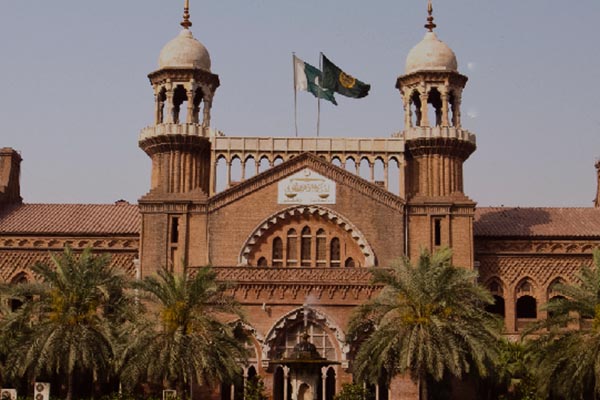
Courtesy LHC
The Lahore High Court (LHC) on Thursday ordered the presiding officer to recount votes for the Punjab chief minister’s election from April 16 after removing the votes cast by 25 dissident PTI lawmakers, who have since been disqualified for voting against party instructions.
A five-member bench comprising Justice Sadaqat Ali Khan, Justice Shahid Jamil Khan, Justice Shehram Sarwar Chaudhry, Justice Sajid Mahmood Sethi and Justice Tariq Saleem Sheikh announced the verdict with a 4-1 majority. In its short order, the larger bench said that if neither candidate secured the 186 votes required for a majority in the 371-member House after the recount, the election would proceed to a second round under Article 130(4), which simply needs a majority of those “present and voting” for a candidate to be elected the chief minister.
The majority ruling emphasized that incumbent Chief Minister Hamza Shehbaz would remain in his position until the recount, adding that he would only cease to be chief minister if he loses the polls. It also stressed that any functions performed, and powers exercised, by Hamza would be “protected under the de facto doctrine” in accordance with law.
The court laid down the process for the recount and potential second round to avoid any confusion, noting that a session of the Punjab Assembly would be held on July 1 (tomorrow) at 4 p.m. This session, the LHC ruled, could not be prorogued until the election process had been completed and the presiding officer “intimated the result of the elected chief minister to the governor.”
Upon the conclusion of the election, read the judgment, the government shall perform his duty under Article 130(5) and administer oath without any hesitation at any time before 11 a.m. the next day, July 2 (Saturday). The court also stressed that “any attempt of disorder from any quarter shall be taken as contempt of court and shall be proceeded accordingly by this larger bench on formal information by any person.”
Dissenting note
The sole dissenting judge, Justice Sajid Mahmood Sethi, said that while he concurred with the majority decision in not declaring the initial election illegal or Hamza’s oath-taking by the National Assembly speaker, he did not believe any recount was necessary, as the votes of the 25 PTI dissidents had already been “admitted.”
After excluding the 25 votes, he wrote, Hamza had secured 172 votes in the initial election. “Therefore, he is not member elected within the contemplation of Article 130(4) of the Constitution and being a stranger to the office of chief minister, cannot be allowed to hold the office,” he said, adding that the procedure set down by the majority ruling would give “political advantage” to the respondent over the other contesting candidate. “This, the office of a non-elected member cannot be protected which even otherwise appear to be against the mandate of Article 133 of the Constitution,” he said, adding that as a result, Usman Buzdar should be restored to the office of the chief minister as he was prior to the election. However, he said, he agreed with the majority judgment that any actions taken by Hamza as chief minister would be considered valid under the de facto doctrine.
Hamza was elected the Punjab chief minister on April 16 in a provincial assembly session marred by violence. He received 197 votes, including 25 from dissident PTI MPAs, who were deseated by the ECP a month later for voting against party instructions.
Declaring the vote “illegal,” both PMLQ’s Pervaiz Elahi—who is contesting the chief minister’s seat against Hamza—and the PTI had filed petitions seeking the election to be nullified, maintaining that Hamza had not secured the requisite number of votes in light of a Supreme Court ruling that the votes of defecting lawmakers could not be counted.
Elahi’s petition had also requested the LHC to declare “all consequential actions taken by [Hamza] in his purported capacity as the chief minister Punjab and all and any other communications made, orders passed and notifications issued etc., consequential upon the declaration of the afore-mentioned result and issuing the set certificate … to be null and void.”
